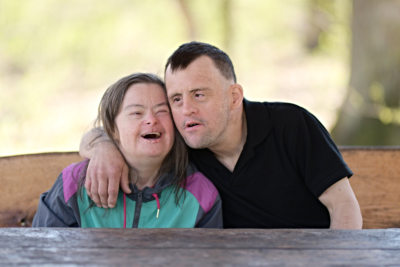
This is available to those being served by the Division of Developmental Disabilities (DDD). The objective of this program is to provide highly personalized, attentive, and well-trained care. These qualities span across three main areas of service: Attendant Care, Habilitation, and Respite in the member’s home and/or community.
Respite Care Hourly & Daily (RSP)
This provides short-term care to relieve caregivers from their duties. Members being cared for by the respite care providers must be eligible for supports and services. Respite care services are intended to relieve unpaid caregivers temporarily of their duties and are not intended as a permanent solution for placement or care.
Attendant Care (ATC)
This service provides assistance so that a member may remain in their home and participate in community activities. By being provided assistance in maintaining their personal cleanliness, activities of daily living, and safe and sanitary living conditions, they can successfully integrate within society.
Their services may include:
- Meal preparation and clean up
- Eating and assistance with eating
- Bathing
- Dressing and grooming
- Toileting
- Mobility
- Transferring
- Cleaning
- Laundry
- Shopping
Habilitation Hourly (HAH)
Health Homes is proud to provide members and their families who live at home or on their own with a variety of useful services to afford them a more balanced and structured life through our Hourly Habilitation Program. The goal we have in this program is to help each member to achieve success in every aspect of community life.
Hourly Habilitation is designed to make it easier for members to live independently. Our Habilitation Specialists provides members new skills to advance their independence skills. These services provided are designed to improve a member’s social skills, personal hygiene, and other self-help skills so that they may maintain independence. This program provides an opportunity each member to develop a sense of dignity and self-worth.
- Increase independence and socialization skills
- Increase safety and community skills
- Increase a member’s health and safety
- Training in activities required to meet personal and physical needs
- Training in Alternative and/or adaptive communication skills
- Training in Self-help/living skills
- Develop a member’s support system to reduce the need for paid services
- Help a family member to learn how to teach a new skill

